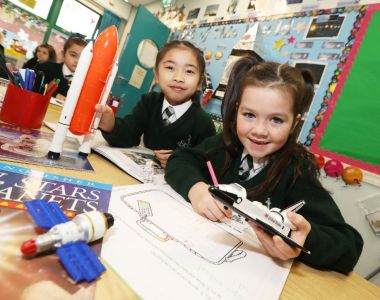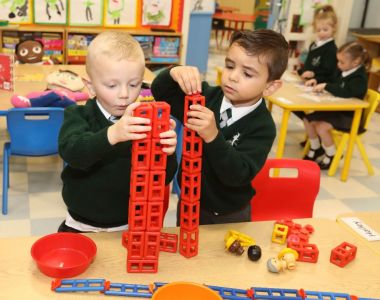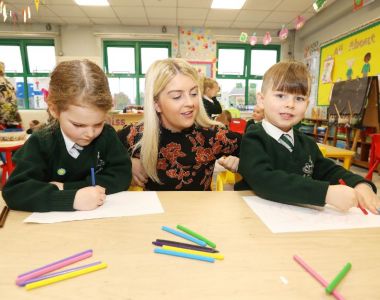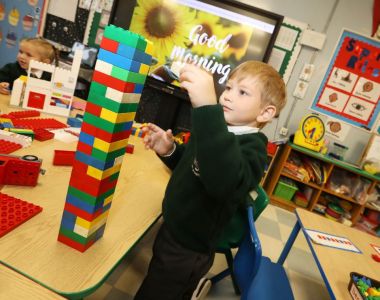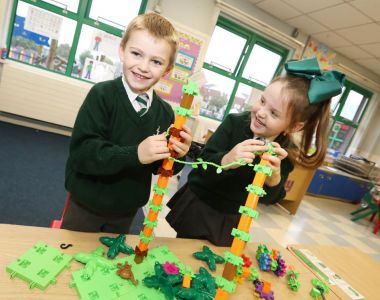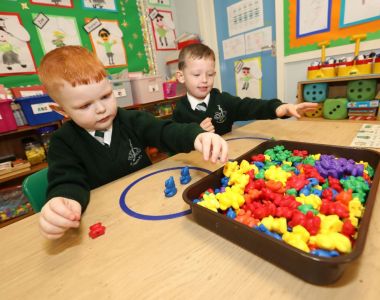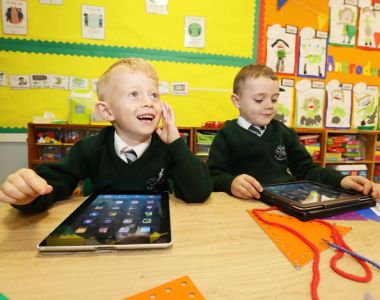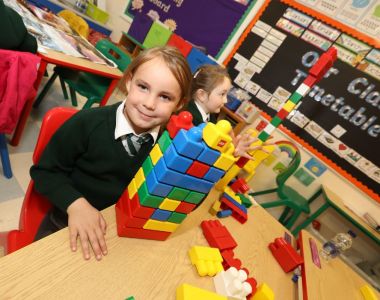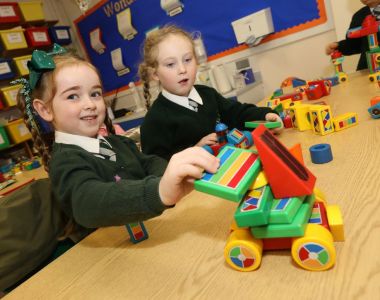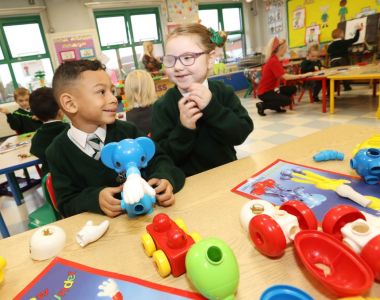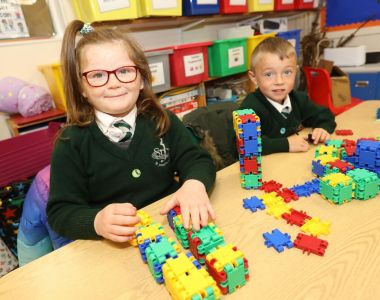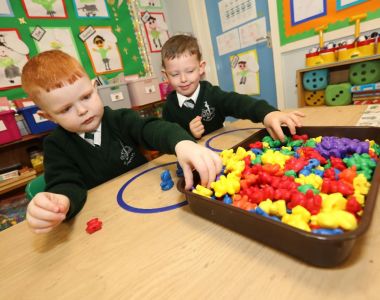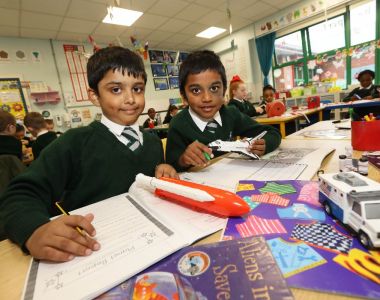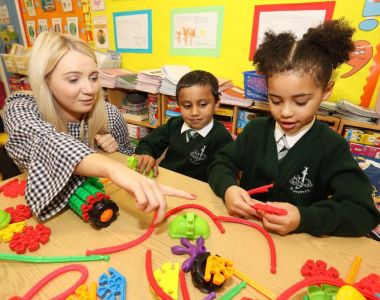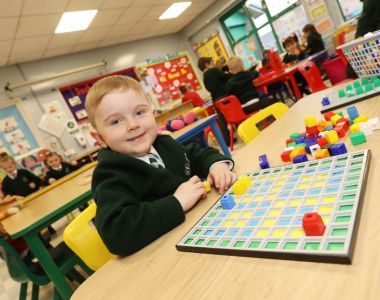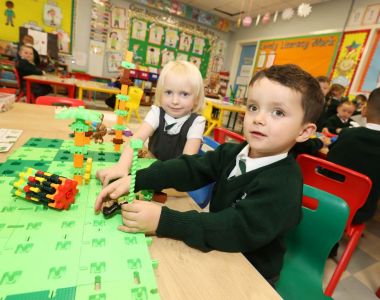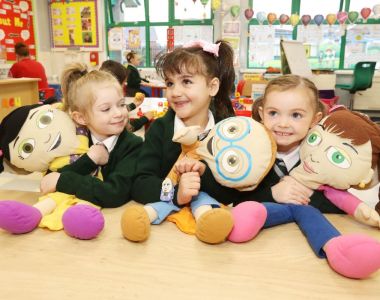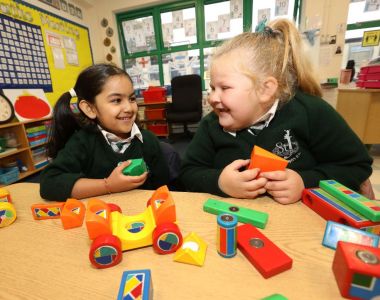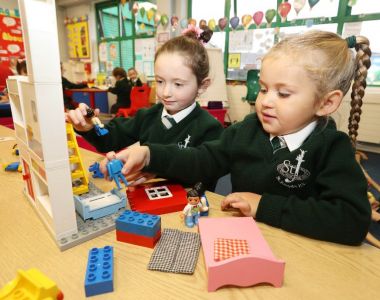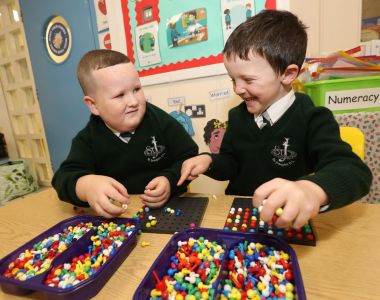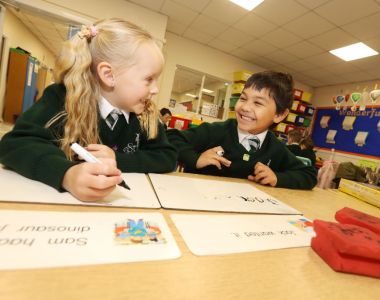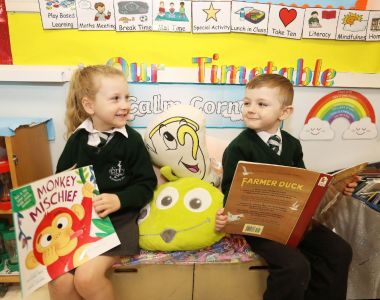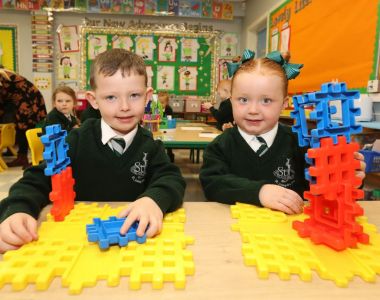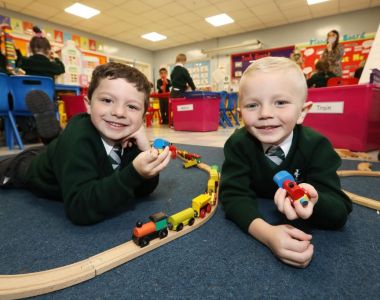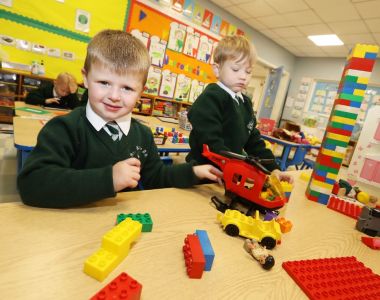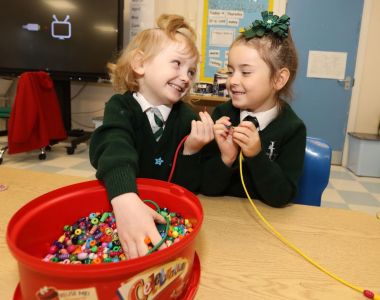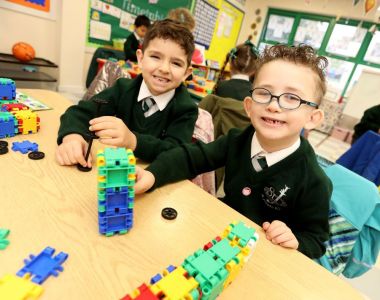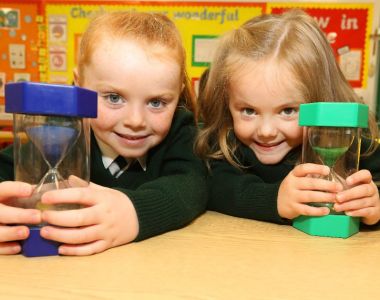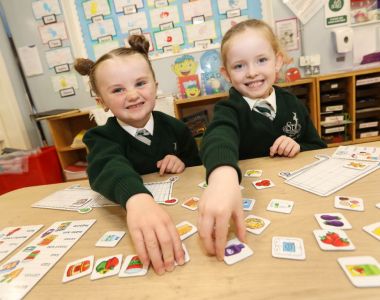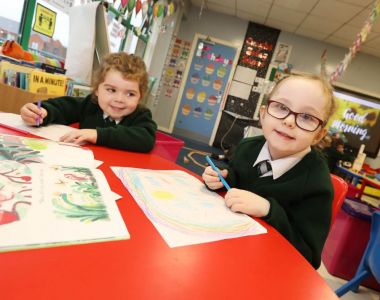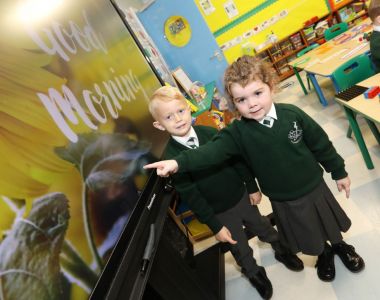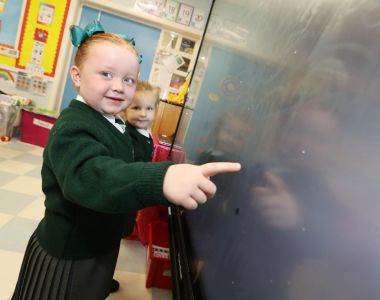Literacy
The skills of reading, writing, talking and listening lie at the heart of the curriculum. Our language teaching covers the whole range of these skills from the direct teaching of grammar, spelling and punctuation, to the writing of imaginative stories, poetry and the encouragement of self-expression through drama and discussion. The interaction of all these aspects of English teaching develops the skills required for life by our children. We have individual class libraries of fiction and nonfiction books and a main library area with a range of books and teaching resources. Reading is widely promoted throughout the school. Every opportunity is taken to instil in the children a lasting love of reading and literature. All our classroom assistants are trained in the Reading Partnership programme and they regularly work with individual children to improve their reading and comprehension skills.
Literacy focuses on developing each child’s ability to understand and use language as an integral part of learning in all areas in order to interact effectively with the world around them, to express themselves creatively and to communicate confidently (through talking and listening, reading and writing) using a variety of skills and media. Language and Literacy are fundamental prerequisites for thinking, learning and interacting in personal, social and work contexts throughout life. Literacy is therefore a key to learning as well as a key to enjoyment and personal growth.
Building on children’s earlier experiences
Children’s language is central to their ability to communicate in relationships and learning, to understand ideas and to order, explore and refine their thoughts. The Foundation Stage builds upon the experiences and understanding of language brought from the home and local community. This language will have been valued and encouraged so that children can express their own needs, thoughts and feelings.
Children will also have been encouraged to develop an enthusiasm for stories, books and rhymes. Through sharing books with adults it is hoped a curiosity for words will have developed and that children will be familiar with the letters and their shape and sound. Our Foundation Stage teachers consult with our Nursery partners to ensure no unnecessary repetition of work occurs and they can start focusing on the child at their individual starting point.
English as a second Language
Second language learning improves children’s communication and literacy skills, enabling them to develop their aural and visual memory and encouraging them to become clear and confident speakers as well as attentive listeners. Children are helped to develop a greater understanding of how language works by exploring the similarities and differences between their mother tongue and the second language. Moreover, learning a second language serves to consolidate ideas, concepts and skills already taught in other areas of the curriculum and, when combined with elements from the areas of Personal Development and Mutual Understanding and The World Around Us, can help to create a meaningful and real context in which to develop children’s inter-cultural understanding.
Language & Literacy across the curriculum
Mathematics and Numeracy - by using mathematical language to express ideas and explain thinking; by reading and interpreting numerical data in factual reports and newspapers and by using ICT;
The Arts - by talking, listening, reading and writing about their own work and the work of others in Art and Design and Music; by using role-play, Drama, Dance and ICT to further enhance their work;
The World Around Us - by talking and listening, reading and writing about all aspects of The World Around Us and using role-play, drama and ICT; Personal Development and Mutual Understanding - by talking and listening, reading and writing and using ICT in exploring Personal Development and Mutual Understanding issues;
Physical Education - by understanding, interpreting and using arrange of movement vocabulary as a stimulus for movement and by using ICT in exploring and developing Physical Education issues
St Josephs Primary School, 1a Slate St, Cullingtree Road, Belfast BT12 4LD Phone: 028 9032 3683
 Menu
Menu
